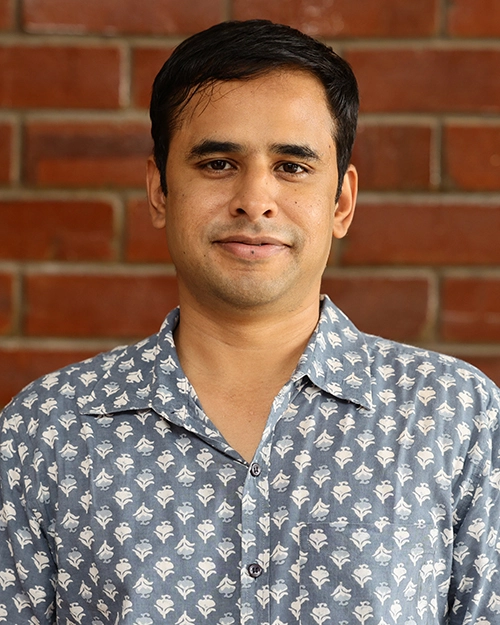
M.A. (Kerala University);
M.Phil.; Ph.D. (University of Delhi)
Associate Professor, Philosophy
| rkrishnaswamy@jgu.edu.in | |
| Connect with me | |
| Key Expertise | His research interests criss-cross across various disciplines. He works on issues related to the philosophy of mind, particularly on embodied cognition and its relation to Husserlian phenomenology. One of his current interests is researching issues like normativity of language, use-theory of meaning and other related problems in philosophy of language. He has also published works in political/social philosophy. His recent book Wittgenstein and the Nature of Violence (Routledge, 2020) explores what role linguistic behaviour plays in how we engage with each other on the political and the social plane. His upcoming book The Language of Recognition: The Norms of Intersubjective Engagement (forthcoming: Routledge 2022) will explore whether our rational capacity to use language can create a viable discourse-theoretic model towards recognising our innate need for social recognition. |
M.A. (Kerala University);
M.Phil.; Ph.D. (University of Delhi)
Dr. Krishnaswamy is Associate Professor and Co-Director for the Centre for Social and Political Research. He has a Ph.D from University of Delhi in Philosophy. He has held a research fellowship at University of Carleton, Ottawa, Canada. He has recently been a HESP/CEU post-doctoral fellow at the philosophy department at Central European University, Budapest, Hungary (now in Vienna). He also been a guest lecturer at University of Delhi (St. Stephen’s College, University of Delhi)
| rkrishnaswamy@jgu.edu.in | |
| Key Expertise | His research interests criss-cross across various disciplines. He works on issues related to the philosophy of mind, particularly on embodied cognition and its relation to Husserlian phenomenology. One of his current interests is researching issues like normativity of language, use-theory of meaning and other related problems in philosophy of language. He has also published works in political/social philosophy. His recent book Wittgenstein and the Nature of Violence (Routledge, 2020) explores what role linguistic behaviour plays in how we engage with each other on the political and the social plane. His upcoming book The Language of Recognition: The Norms of Intersubjective Engagement (forthcoming: Routledge 2022) will explore whether our rational capacity to use language can create a viable discourse-theoretic model towards recognising our innate need for social recognition. |